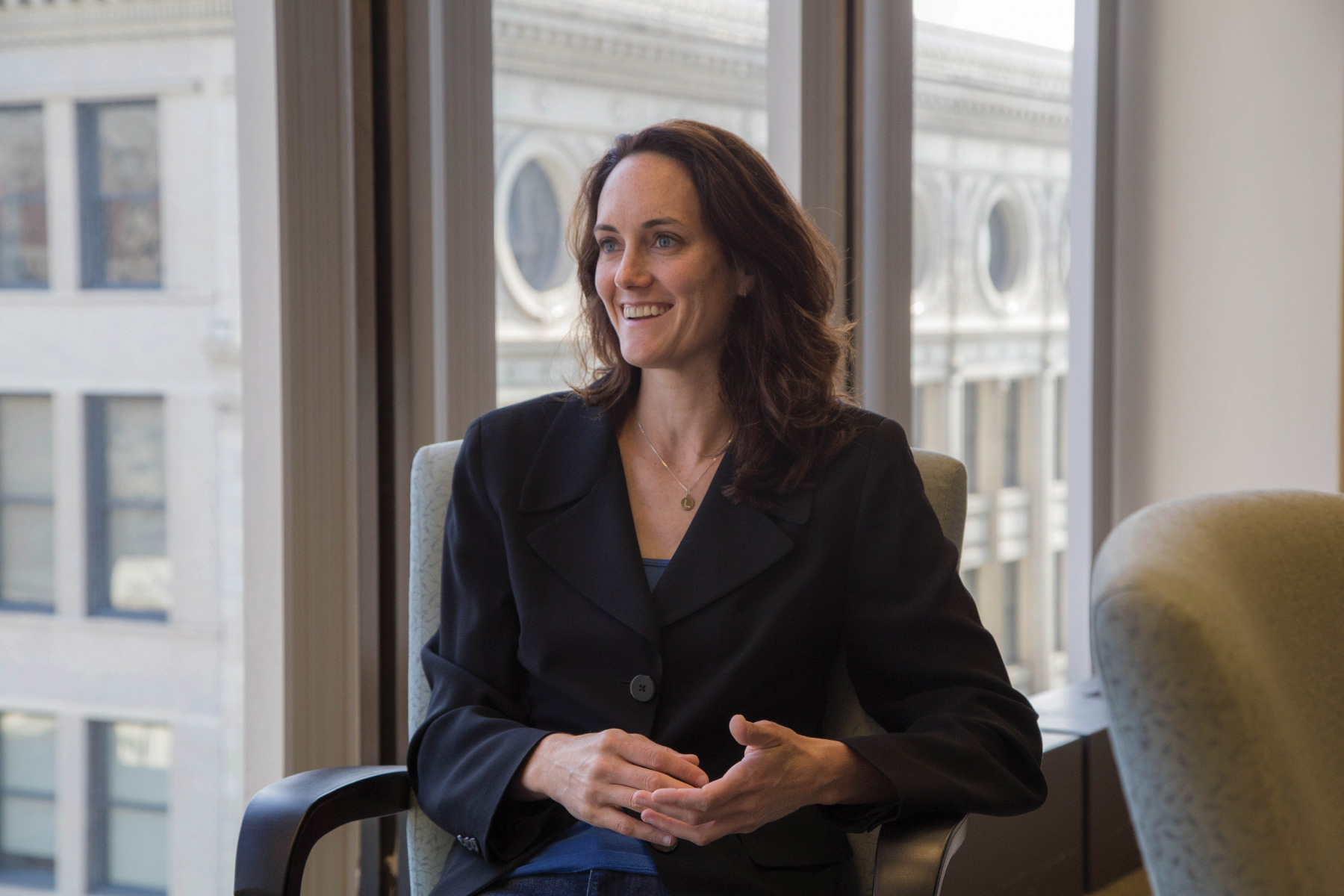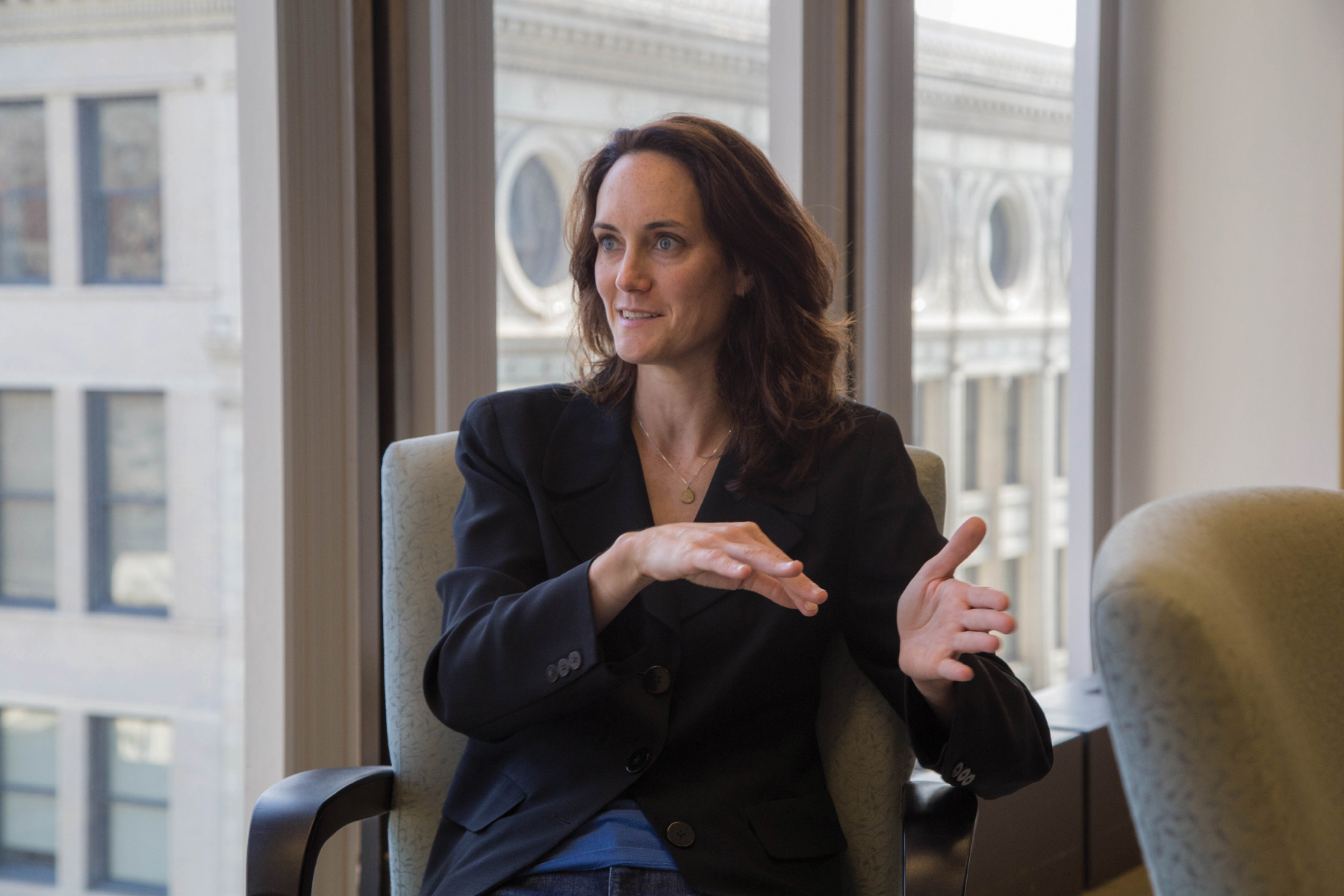
Lindsay Wagner (MED ’10) always wanted to work in education. Yet, after graduating from Syracuse University, she was lured away by the bustling New York City publishing scene. Several years and career changes later, her decision to be a school counselor brought her full circle. “I don’t remember who [my school counselors] were,” she says. “There wasn’t anyone who influenced me, and I want to make sure that I [influence] my students.”
About 50 miles outside of Chicago, Wagner manages a caseload of approximately 400 students at Carpentersville Middle School. She loops with students between seventh and eighth grade, preparing them for everything from how to deal with bullies to how to pick high school courses. “By the time they [graduate], I want them to be self-advocates,” she explains. “I want them to be self-directed learners who work independently of an instructor in the room. I want them to be able to collaborate. I want them to have that sense of responsibility and of being prepared for what comes next.” Wagner achieves this through individual and small-group sessions.

As early as seventh grade, Wagner discusses career options with her students, hoping to pique their interests. “That’s when their aptitudes begin to form,” she reveals. “You can take hold of that energy and direct it. Picking their classes for high school can directly affect their entire post-high-school experience in terms of what they want to major in [in college] or do after high school.”
Using the American School Counselor Association (ASCA) National Model she mastered at DePaul, Wagner tries to reach what she calls “the whole student” by engaging students on academic, career and social-emotional levels. “A lot of the work I do is on the social-emotional side because of the age I work with, but we have students who come to us with high needs [in all levels],” she says. “It’s our job to [address those needs],” she says. Wagner believes she’s able to strike this balance because of her time at DePaul.
“You make hundreds of choices every day,” she says. “I don’t know all the time that I am making the right ones, but I know that I received the training to be able to do that.” She credits professors Erin Mason, Melissa Ockerman and Joy Whitman with helping her develop a strong skill set. “Everything I’m doing I owe to them because they helped shape everything I do with my students,” she asserts. Wagner most enjoyed the mock counseling sessions and the reflection that followed hours of practice. “The program prepared me tremendously, and the clinical placement and internships gave me a crash course in what I might be encountering [in the field] … I wouldn’t be able to sustain this work without the training I had at DePaul.”
Wagner strives to have a lasting impact on the students with whom she works. “We get into this work for a reason,” she says. “You want to be able to support, assist and affect student development across these two years. This is a time where there can be a lot of uncertainty, and I hope my students are able to move forward to high school as confident young people.”
|
Collaborate, Collaborate, Collaborate. |
Join ASCA. |
Avoid Burnout. |
Make Connections with Parents. |
| I would not have done half the things that I do with students without administration and teacher support. Find ways to tie your work into what teachers are doing int he classroom. |
There are amazing resources on the ASCA website that you can utilize - don't reinvent the wheel. Using the blog can make the profession seem smaller, and networking can boost productivity and re-energize you. |
The work that we do can be draining and difficult at times. Make sure to make time for yourself. Take a walk. Go out for a bite to eat. Read something that has nothing to do with the students you serve. You will thank yourself when you return to your students the following day. |
Often, parents do not fully understand the ways we can help their children, so I hand out cards with my contact information at events. It brings parents into the conversation, and you'll be surprised at how that introduction can help with a future phone call or email. |
Interested in making a career change like Lindsay? DePaul College of Education's graduate program in Counseling provides a rigorous instructive environment to cultivate counseling and relationship building skills under the direction of both DePaul College of Education faculty and supervisors. With concentrations in clinical mental health counseling, college student development, and school counseling, graduates of this program are prepared for career opportunities such as school counseling in elementary, middle, and high schools; counseling in community agencies; counseling in higher education; career counseling through the lifespan; counseling in hospitals or institutional-care settings; group counseling; couples and family counseling; or counseling in private practice, depending upon the concentration chosen.
Explore Counseling